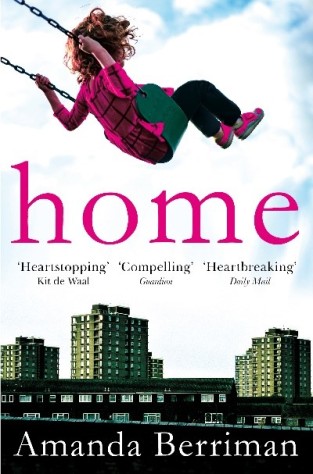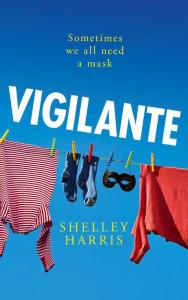We’re very proud to host this essay by Kasmira Kincaid, the first ever care leaver to graduate from her Cambridge college.
The Fostered Child in Fiction
From Harry Potter to Luke Skywalker, Superman to Batman, Frodo Baggins to James Bond, our most famous cultural icons all share a secret. They belong to one of the most marginalised and misrepresented groups in society. I write of the fostered and adopted child, and the adults we grow up to be.
There are few tropes more overused in fiction than the absence of a character’s parents. The orphan or would-be orphan makes for a compelling protagonist; exposed, vulnerable, thrown into an unfamiliar situation, surrounded by unfamiliar people, and expected to succeed on their wits alone. Our culture is obsessed with these stories. I’m obsessed with these stories. The problem is that, overwhelmingly, the people telling care and adoption stories are not those who have lived them.
The question of who has the right to tell which stories has become one of the most fraught subjects in contemporary discourse. And yet, for all the debates, the vast discrepancy between who gets paid to tell care and adoption stories, and who has actually lived them rarely gets noticed. It’s hard to think of a demographic more overrepresented in fiction, with less agency over how our stories are told, than care-experienced people.
I’m not seeking to call-out and cancel those who would “appropriate” care stories. The books and films I’m about to mention are, for the most part, books and films I enjoy, created by writers and filmmakers I respect, and even deeply admire, to the extent that I used to fantasise about travelling back in time to plagiarise their work before they’ve written it. (This is normal, right?) My concern is not books and films as individual artefacts, but as a collective phenomenon.
Fostered and adopted children are everywhere in fiction. In the original Star Wars trilogy, Luke Skywalker is raised by his Aunt Beru and Uncle Owen. His sister, Princess Leia, is adopted by Senator Bail and Queen Breha of Alderaan. Their teammate, Han Solo, was orphaned, then raised by the bounty hunter Garris Shrike. And the trilogy’s main villain, Darth Vader, was (spoiler alert) raised by none other than Obi Wan-Kenobi himself.
Others include Frodo in The Lord of the Rings, adopted by his cousin Bilbo; Peter Parker of the Spider-Man films and comics, fostered by his aunt and uncle; Clark Kent of the Superman franchise, fostered by Jonathan and Martha Kent; James Bond of the James Bond films and novels, fostered by his aunt Charmian; Bruce Wayne of the Batman franchise, fostered by his valet, Alfred; Robin, also of the Batman franchise, fostered by Bruce Wayne; the Doctor of the long-running TV series Doctor Who, adopted by Tecteun; and Harry Potter, fostered by his aunt and uncle, Vernon and Petunia Dursley.
In classic and contemporary literature, the list would include Jane Eyre; Heathcliff in Wuthering Heights; David Copperfield; Oliver Twist; Philip Pirrip in Great Expectations; Esther Summerson in Bleak House; Quasimodo in The Hunchback of Notre-Dame; Jean Valjean in Les Miserables; Lisbeth Salander in The Girl with the Dragon Tattoo; Edward Cullen in Twilight; and Eleanor Oliphant in Gail Honeyman’s bestselling Eleanor Oliphant is Completely Fine. In children’s literature: Lyra Belacqua in His Dark Materials; Nobody Owens in The Graveyard Book; Matilda Wormwood in Matilda; Miss Honey, also in Matilda; Violet, Klaus and Sunny in A Series of Unfortunate Events; and almost the entire cast of Jacqueline Wilson’s immensely popular The Story of Tracy Beaker novels.
With the exceptions of Charles Dickens and J.R.R. Tolkien, none of the writers or filmmakers behind these iconic characters were themselves fostered or adopted. And, on a case by case basis, I don’t have a problem with this. The above represent some of the best – and certainly the best-loved – characters in fiction. However, there remains something distinctly unsavoury about a cultural industry which is obsessed with care stories, but rarely allows care-experienced people to tell them. And about an audience that adores Harry Potter, Luke Skywalker and Tracy Beaker, yet is often openly prejudiced against fostered and adopted children.
In real life, fostered children face not only lifelong obstacles but active prejudice. When residents of the village of Llwynhendy in Wales, near where I was born, protested against plans to open a new children’s home with banners that read “NO TO HIGH RISK YOUTH OFFENDERS”, they probably weren’t thinking of eleven-year-old Harry Potter, sat in the cupboard beneath the stairs, soon to receive his letter from Hogwarts. The people who wrote those banners have probably watched all the Star Wars films, dressed their children up as Superman or Batman, and eagerly anticipated the release of each new James Bond film.
On a case by case basis, popular representations of fostered children are pretty good. They range all the way from The Avengers’ marvellously villainous Loki, to Stieg Larsson’s righteous anti-heroine Lisbeth Salander; from Roald Dahl’s bookish psychic Matilda, to The Guardians of the Galaxy’s dumb but big-hearted Peter Quill. If there is a similarity between fostered protagonists Harry Potter, Luke Skywalker and Clark Kent, it is mostly because of these characters’ archetypal roles, inherited straight from classical literature and mythology.
But as a whole, these representations are far whiter, straighter, more able-bodied and more middle-class than the community they reflect. Real-life fostered and adopted children are disproportionately likely to be queer, disabled and/or people of colour. This is no individual writer or filmmaker’s fault. But if collective representations on the page or screen look nothing like the demographic in the real world, dissonance is inevitable. When nobody reading or watching these characters recognises them as fostered, the compassion felt for them is not extended to fostered children and care-experienced adults in the real world.
It’s hard to understate the love we have for our most iconic fostered characters. The frenzy around all things Harry Potter is unparalleled. Except, perhaps, by the frenzy around all things Star Wars, or the frenzy around all things Marvel, who trade in their fair share of fostered characters. If blockbusters aren’t your thing, you may have had your heart warmed by Dickens’ orphans, or continue harbouring an adolescent crush on Emily Bronte’s Heathcliff (although, if you are, please go get therapy). Personally, I’ve recently loved Taika Waititi’s 2016 film Hunt for the Wilderpeople, in which his protagonist, Ricky, strikes the perfect balance between being relatably troubled (which foster child hasn’t run away from a placement on the first night?) and sympathetic. But this love that spans films as diverse as A New Hope and Hunt for the Wilderpeople, books as unlike one another as Matilda and Les Miserables, rarely extends as far as real-life fostered children. Nor does it translate into an interest in the work and stories of care-experienced writers and filmmakers.
As an aspiring novelist, it’s tempting for me to embrace the idea that, with enough empathy, curiosity and diligent research, anyone can tell anyone else’s story. But even if this is the case, there remains something just plain wrong about an industry that consistently trades on privileged accounts of marginalised stories, all while keeping the marginalised outside the doors.
When you’re constantly written about, but rarely allowed to tell your own story in your own voice, you become a passenger on your own ship. At times, you may even become a stowaway; unwelcome in a conversation which is in fact all about you, never rearing your head for fear that, if no one likes what you say, you might get thrown overboard. No amount of agency given back to you in the form of fiction can compensate for the loss of your voice.
There are set expectations as to what care-experienced writers and filmmakers can bring to the table: drugs, trauma, “grit”, paragraphs written entirely in Scots or in dialect. Of course, there’s nothing wrong with these things. As a (quite literally) adopted daughter of the city of Bristol, I eagerly await the great British novel written entirely in West Country English. But such narrow expectations are always limiting.
It can feel as though marginalized writers are hired not for our talent, but for our experiences. That we are seen not as writers, but as witnesses or, at the very most, representatives, and that therefore, because we are representatives, one or two of us are enough. Publishing particularly seems to suffer from this strange conviction that, while the public has an almost-endless appetite for stories about middle-class white women engaged in relationships with emotionally-unavailable older men (seriously, I have a list), they can only stomach one or maybe two books per year about Black or working-class people…
I don’t want to be that one “lucky” working-class, care-experienced person. As much as I want succeed, I don’t want to be a representative. My experiences as a white, queer, Oxbridge-educated woman, taken into kinship then foster care as a teenager, are fundamentally different from those of most other care-experienced people. There are far too many amazing stories – both true and fictional – by care-experienced writers that are simply begging to be told, that will keep you voraciously turning pages and leave you unable to think about anything else for months afterwards (and yes, I have a list of those also).
As a society, we’re not much good at addressing systemic problems. We are far better at cancelling people or, rather, announcing that they’re “cancelled”, only for them to re-emerge unscathed a couple of weeks later. The real solution is – rather obviously – publishing, commissioning and elevating more diverse voices, which should include care-experienced voices, especially when telling care and adoption stories. Readers and viewers can also do their bit, by seeking out the work of care-experienced writers and filmmakers, whether we’re telling our own stories, stories like our own stories, or stories completely unrelated to what we have lived through.
Honestly though, it feels a bit strange to have to have to ask this. I find it surprising that care-experienced people are underrepresented in the creative industries at all. After all, we know what we’re doing. We’re the protagonists of all the greatest stories ever told.








